Russell Brand’s Addiction Journey
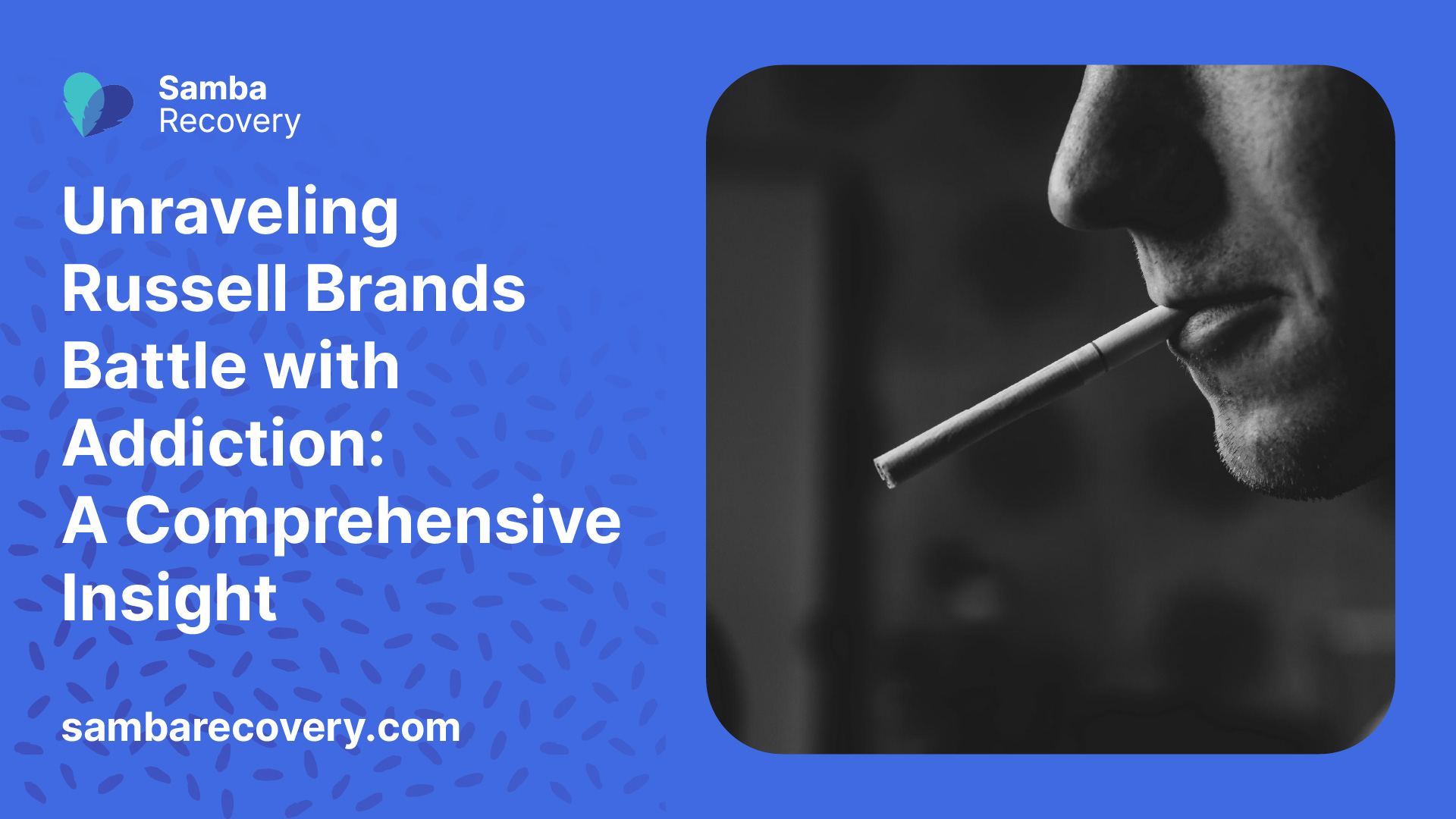
Early Substance Experimentation
Russell Brand’s relationship with substances began at a young age. He first tried alcohol at the age of 15, marking the beginning of his experimentation with various drugs. Throughout his late teenage years and early adulthood, he encountered cannabis, LSD, and cocaine. This initial exploration soon escalated, leading him toward a trajectory of substance misuse that would continue for over a decade.
Brand’s early exposure to drugs served as a means to escape and cope with life’s challenges. Before drugs became his primary outlet, he relied on food and pornography. These early coping mechanisms set the foundation for a more severe dependency on addictive substances later in life [2].
AgeSubstance Encountered15Alcohol16Cannabis17LSD18Cocaine
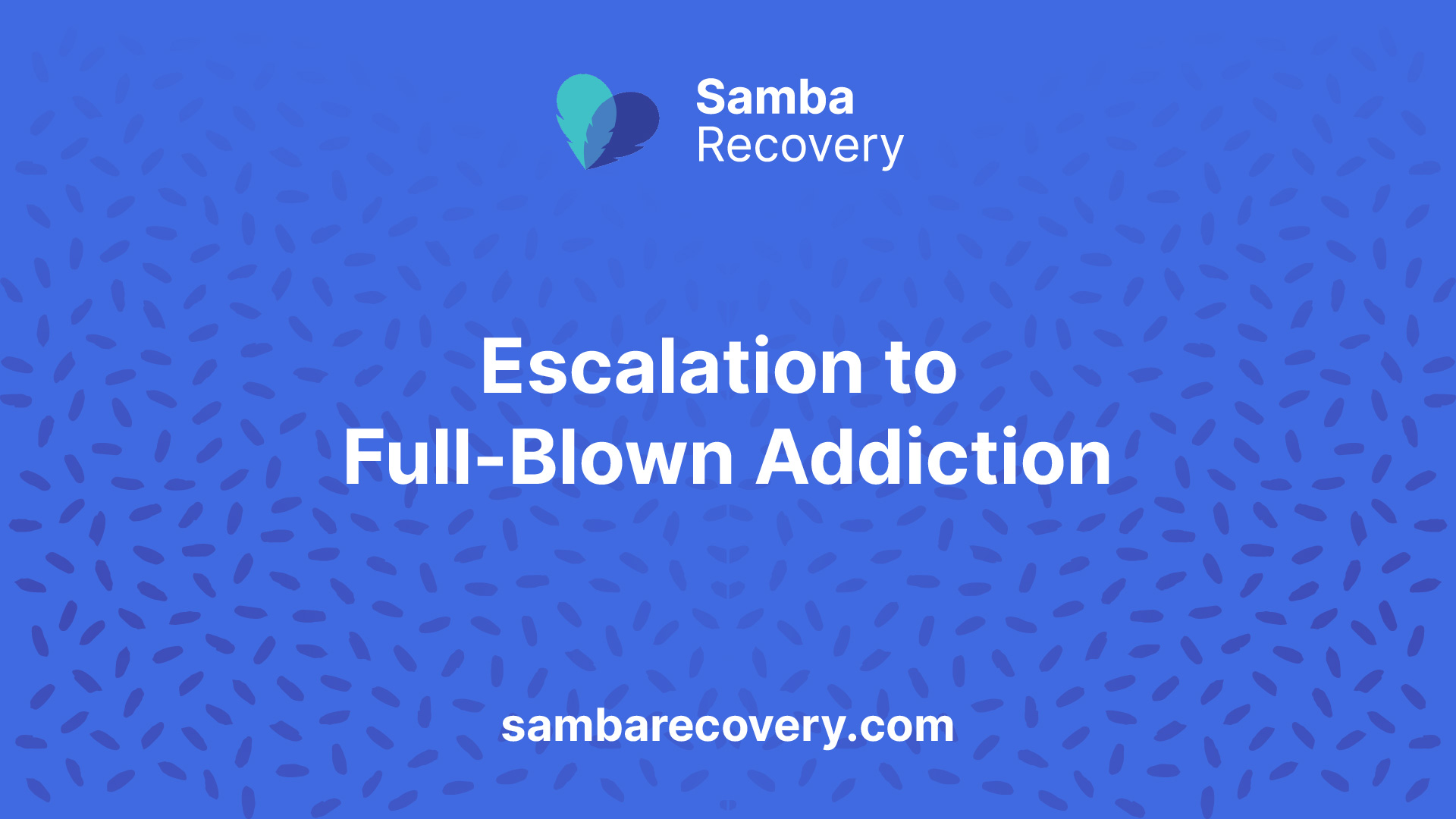
Escalation to Full-Blown Addiction
As Russell Brand transitioned into adulthood, his substance use escalated dramatically. He struggled to maintain control over his drug and alcohol consumption, leading to increasingly severe consequences. This escalation affected various facets of his life, including relationships, career opportunities, and overall well-being [1].
The impact of his addiction was profound, marked not only by personal losses but also by legal troubles, including multiple drug-related arrests. Some incidents reached alarming levels, such as engaging in public sexual activities while under the influence of crack cocaine, demonstrating the depths of his struggles with addiction [2]. The combination of substance misuse culminated in a life-altering battle, further amplified by other addictions, including eating disorders and pornography addiction [3].
Brand’s early experiences and subsequent escalation illustrate the devastating effects that addiction can inflict on an individual’s life, setting the stage for a complex journey toward recovery.
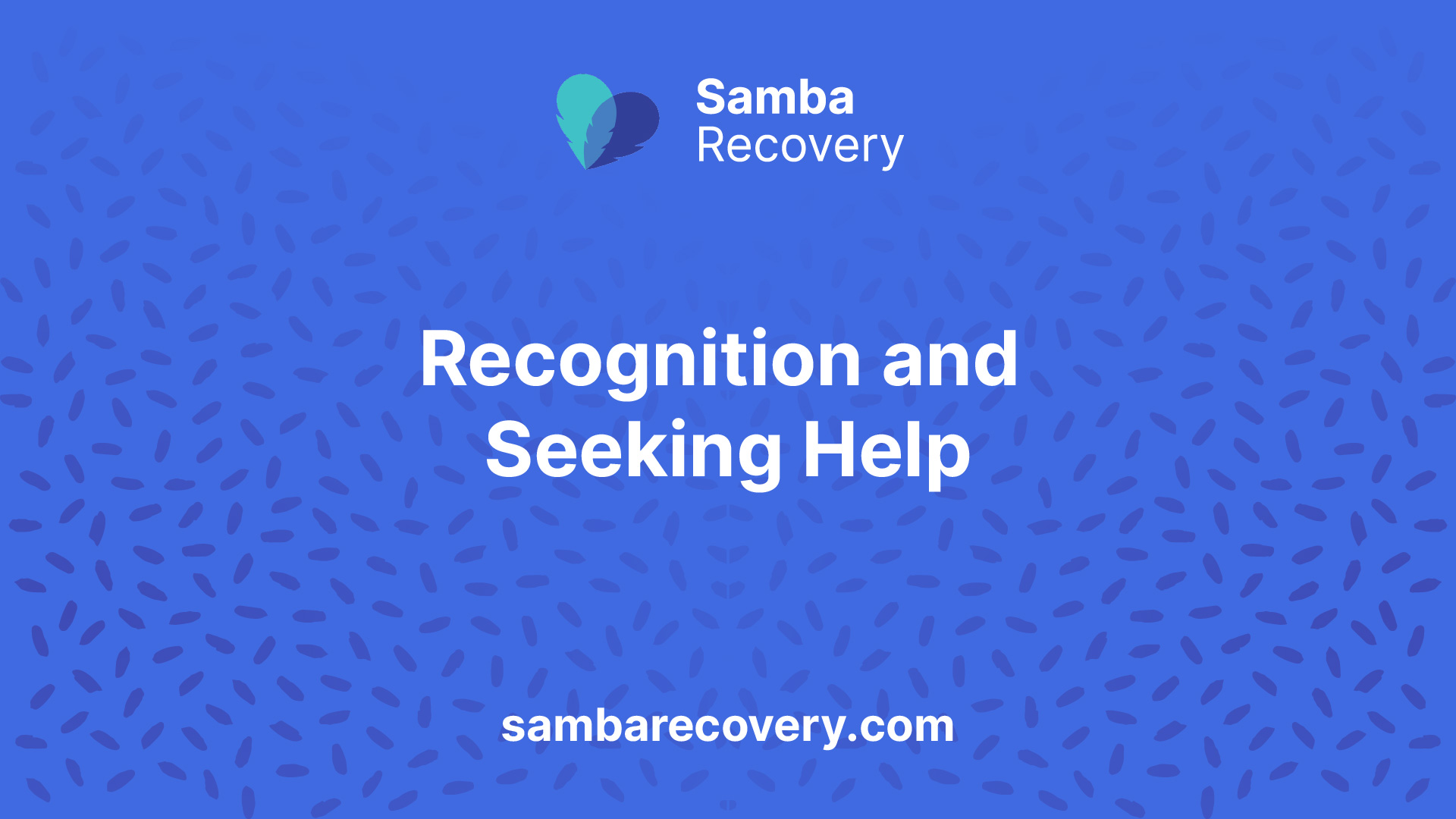
Recognition and Seeking Help
Acknowledging the Need for Change
Russell Brand’s journey toward recovery from addiction began when he recognized the need for change. His experimentation with substances started at a young age, with alcohol consumption at just 15 years old, followed by the use of cannabis, LSD, and cocaine throughout his late adolescence and early adulthood. As his substance use escalated, he struggled to maintain control, which resulted in severe consequences affecting his relationships, career, and overall well-being [1]. This realization prompted Brand to confront the reality of his addiction, ultimately leading him to seek help.
Acknowledging the need for change is a critical step in the recovery process. For many individuals, like Brand, this recognition can be prompted by a significant life event, such as a warning from a friend or a moment of clarity. A supportive environment and the willingness to change are essential in overcoming addiction. Resources like do I need to hit alcohol rock bottom before going for treatment? provide insight into these pivotal moments.
Embracing Treatment Options
Once Russell Brand acknowledged his addiction, he pursued several treatment options to initiate his recovery journey. His path included enrolling in residential rehabilitation programs, attending counseling sessions, and participating in support groups. In 2003, Brand entered the Alcoholics Anonymous program, which he credits for helping him address his substance abuse issues. He was motivated to seek help after a friend and manager warned him about the potential negative outcomes of his addiction.
Brand’s recovery process illustrates the importance of exploring different treatment avenues. Recovery is a lifelong journey that often involves detoxification, therapy, and lifestyle changes to maintain sobriety. By embracing these treatment options, individuals can craft a personalized plan that works for them. Resources on alcoholics anonymous: why aa is harmful to some and stories like Robert Downey Jr. and drugs highlight the diverse paths individuals can take in their recovery.
Russell Brand’s commitment to his recovery and advocacy for addiction awareness serves as an inspiration for many dealing with similar struggles. It demonstrates the importance of personal responsibility, community support, and the conscious decision to change one’s life.
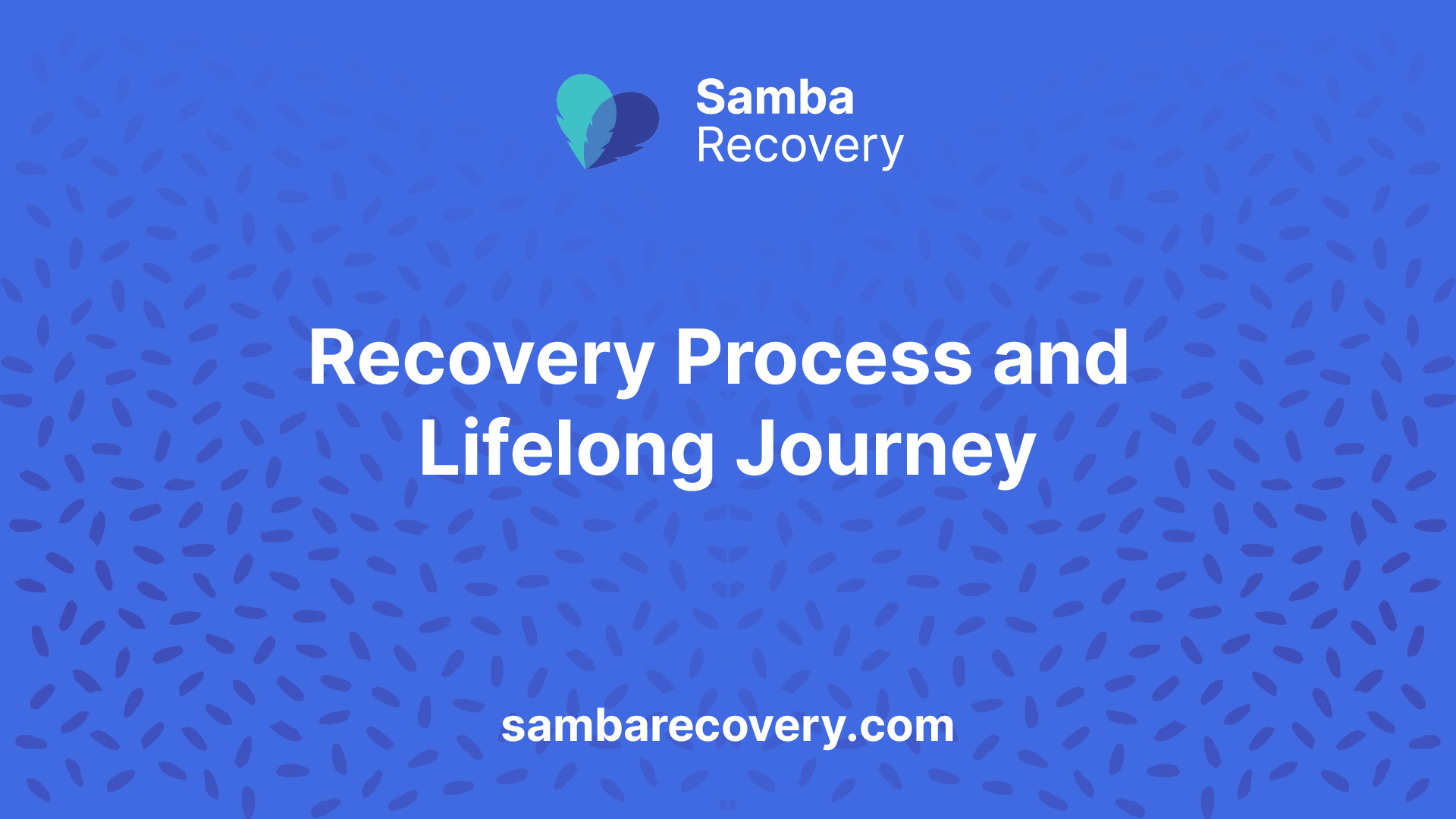
Recovery Process and Lifelong Journey
Steps in Recovery
Recovering from addiction is a lifelong journey that involves multiple stages. For Russell Brand, this journey included acknowledgment, detoxification, therapy, and significant lifestyle changes. He entered a 12-step program in 2003 and has successfully maintained his sobriety since then. Urban Recovery outlines these critical steps in the recovery process:
StepDescriptionAcknowledgmentRecognizing the addiction and admitting the need for help.DetoxificationUndergoing medical and psychological cleansing from substances.TherapyEngaging in individual and group therapy to address underlying issues.Lifestyle ChangesAdopting healthier habits to support a sober lifestyle.Building a Support NetworkEstablishing connections with others who understand the struggle.
Brand has openly credited support groups like Alcoholics Anonymous (AA) for playing a crucial role in his recovery. He emphasizes the importance of fostering an understanding community to help individuals navigate the challenges of sobriety, noting that AA’s structure helped many to maintain long-term recovery [2].
Building a Support Network
Building a strong support network is vital for sustaining sobriety. Russell Brand actively engaged with communities like Alcoholics Anonymous, surrounding himself with individuals who understand the complexities of addiction. Since there are over 115,000 AA groups worldwide, Brand would have found a large community ready to provide support.
Establishing a network helped him conquer fears associated with sobriety, learn to live in the moment, and ultimately find solutions to his addiction issues. For those in recovery, having a community offers the following benefits:
BenefitDescriptionEmotional SupportProvides encouragement during tough times.Shared ExperiencesFacilitates discussions about similar struggles and coping strategies.AccountabilityHelps individuals stay committed to their recovery goals.
Brands’ experience highlights the significance of connection, affirming that isolation can be a significant challenge for high-functioning addicts. Recovery can be more sustainable when individuals have the support of peers who empathize with their struggles [4].
By combining personal commitment with a robust support system, Brand demonstrates how recovery can be achieved and maintained over the years. For additional information on seeking help, visit our article on do I need to hit alcohol rock bottom before going for treatment?.
Advocacy and Awareness Efforts
Russell Brand has utilized his platform to raise awareness about addiction, sharing his own experiences and encouraging others to seek help. Through various initiatives and personal projects, he has become a prominent advocate for addiction recovery.
Openly Sharing Struggles
Brand has openly discussed his battles with addiction and the path to recovery in his book “Recovery: Freedom From Our Addictions.” In this book, he reinterprets the 12 steps of Alcoholics Anonymous to resonate with a wider audience of substance users [3].
He emphasizes the significance of sharing personal stories and feelings to foster a supportive community in the recovery process. Brand actively seeks to break the stigma surrounding addiction and urges individuals to view substance use as a complex issue rather than a moral failing. He points out that drugs and alcohol were not his true problems, but rather a solution to an underlying reality [5].
Additionally, Brand recognizes that many people find it difficult to empathize with those struggling with addiction. He highlights the importance of changing perceptions to provide compassionate support and treatment, focusing on the idea that addicts should be seen as individuals in need of help rather than as villains [6].
Participating in Initiatives
Brand’s commitment to addiction advocacy extends beyond writing. He has initiated a fund called “Give It Up” under Comic Relief, which aims to raise awareness and funds for abstinence-based recovery programs [6]. This initiative reflects his belief that addiction is a disease requiring structured support.
Moreover, Brand has actively participated in campaigns focused on addiction awareness. He advocates for tailored treatment options that meet individual needs, promoting the message that recovery is attainable. By engaging in various awareness events and discussions, he continues to shine a light on the complexities of addiction and the importance of seeking help.
Brand’s efforts not only contribute to the collective knowledge surrounding addiction but also inspire others to share their journeys. His advocacy highlights the profound impact of personal experiences on recovery and the critical need for community support. For anyone considering their journey to sobriety, exploring available resources like sober vacation ideas or understanding life after a DUI can be beneficial.
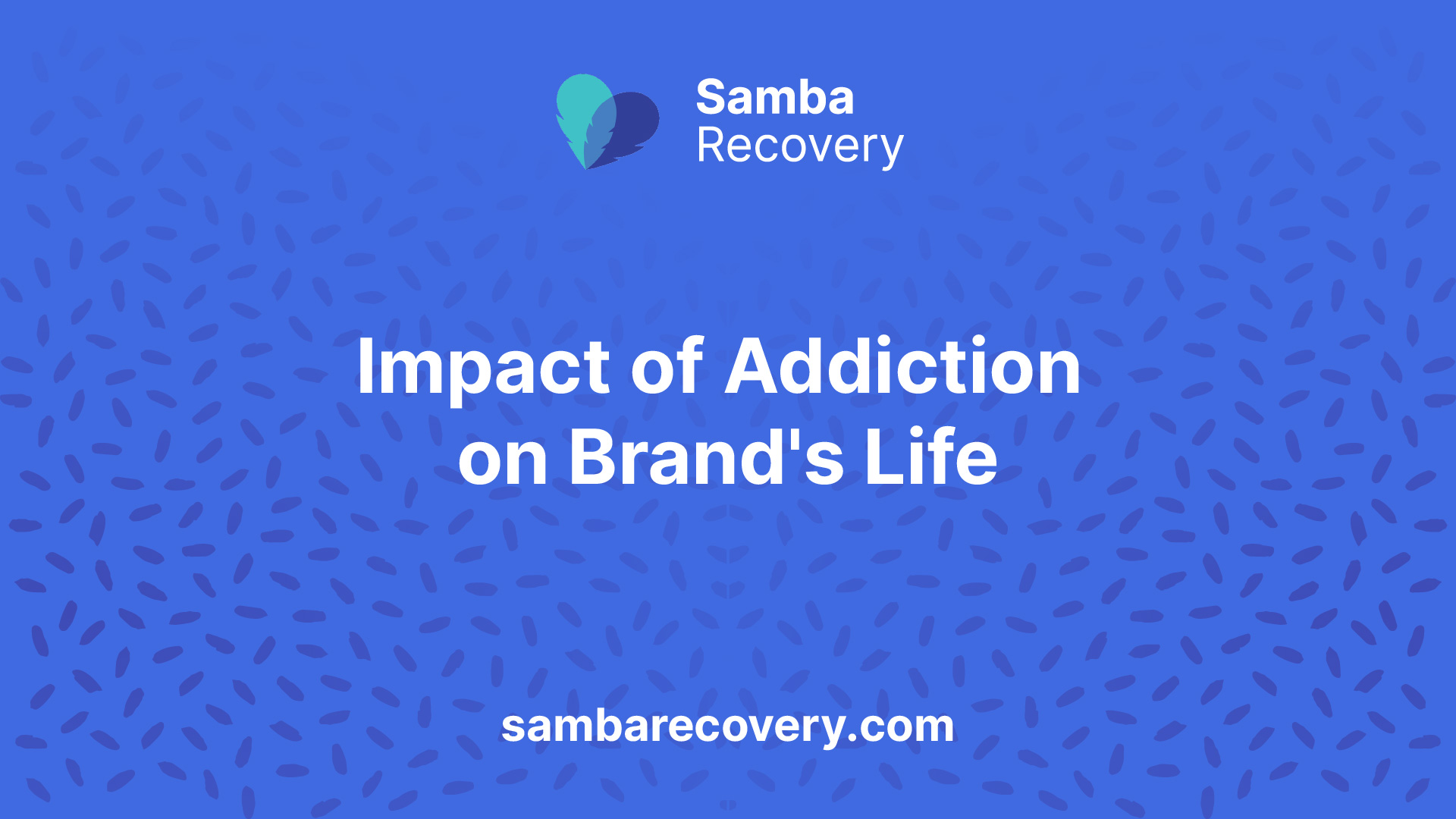
Impact of Addiction on Brand’s Life
Addiction has profoundly affected Russell Brand’s life, bringing about severe consequences and significant losses.
Severe Consequences
Russell Brand’s struggle with drug and alcohol dependency led to devastating impacts on his lifestyle and relationships. His inability to maintain control over his substance use resulted in repercussions that permeated various aspects of his life, including his personal and professional spheres. According to Urban Recovery, these consequences included multiple arrests and incidents of public misconduct while under the influence, such as engaging in public sexual activities while using crack cocaine.
ConsequenceDescriptionArrestsBrand was arrested twelve times due to his addiction.Job LossHis heroin addiction caused him to lose positions at MTV and other networks.Relationship StrainHe lost friendships and romantic relationships during his battle with addiction.
Addiction also introduced Brand to various substances, including heroin, crack, and alcohol, which led to dangerous public behavior and further alienation from his loved ones. His journey through addiction is marked by significant incidents that highlight these consequences, as noted by FHE Health.
Losses and Setbacks
Brand’s addiction journey involved profound losses that extended beyond mere possessions. His struggles with substances precipitated the loss of valuable opportunities. During a four-year period of heavy heroin use starting in 1999, Brand faced professional setbacks that included losing radio shows and television work, as outlined by FHE Health.
Moreover, Brand’s addiction to drugs and alcohol severely impacted his personal relationships. Friends and partners distanced themselves as the addiction progressed. He faced not just the loss of friends but also deeper emotional issues stemming from his struggles with various forms of addiction, including eating disorders and pornography [4].
Russell Brand’s battle with addiction serves as a daunting reminder of the overarching impact addiction can have on one’s life, shaping not just decisions but altering course paths significantly. Understanding these losses and setbacks informs a broader discussion on the importance of addiction awareness and recovery options. For those interested in more about dealing with addiction recovery, relevant topics can be found throughout our sections on safe injection sites and do I need to hit alcohol rock bottom before going for treatment?.
Lessons Learned and Future Outlook
Reflection on Sobriety Milestones
As of December 2022, Russell Brand reached a remarkable 21 years of sobriety, a significant achievement in his recovery from addiction. This milestone serves as a powerful reminder of the possibility of recovery, highlighting the importance of perseverance and dedication in overcoming substance use issues. Throughout his journey, Brand has underscored the complexities faced by those struggling with addiction, emphasizing the vital need for structured support.
Brand’s perspective on addiction reveals profound insights. He states that drug addicts and alcoholics display irrational behavior, feeling entirely powerless without adequate help. This acknowledgment is crucial for many seeking help, as it reinforces the concept that recovery is not merely an individual effort but often requires communal support and understanding.
MilestoneYears of SobrietyFirst year1Significant Reflection5Major Anniversary10Current Achievement21
Advocacy for Decriminalization
In addition to sharing his personal journey, Russell Brand is a vocal advocate for broader societal changes related to addiction. He supports the decriminalization of drug use, believing that this approach can create a more supportive environment for individuals grappling with substance use disorders. Brand’s advocacy is rooted in his understanding of addiction and the struggles many face while seeking help.
By focusing on sharing personal experiences and feelings, Brand aims to push back against the stigma surrounding addiction. He emphasizes the healing power of storytelling and community, believing that effective recovery often involves sharing one’s struggles with others on a similar path.
Brand’s book, “Recovery: Freedom From Our Addictions,” reinterprets the 12 steps of Alcoholics Anonymous, making them relatable to a broader audience. Through these initiatives, he continues to inspire change, encouraging society to view addiction through a lens of empathy and understanding.
The lessons learned from Brand’s experiences serve not only as a personal narrative but also as a call to action for communities and policymakers to reshape the conversation around addiction, creating pathways for recovery that are inclusive and supportive.
References
[2]:
[3]:
[4]:
[5]:
[6]:






